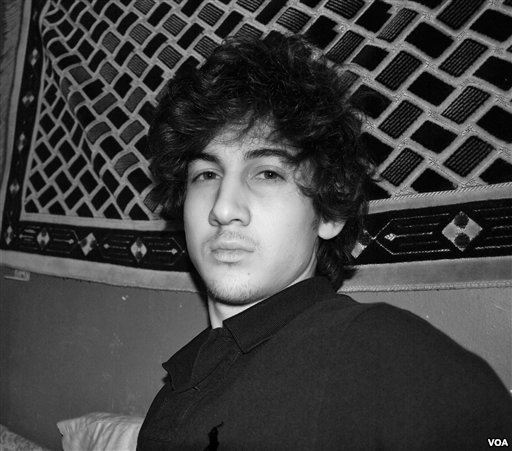As the one-year anniversary of the Boston Marathon Bombings approaches, federal prosecutors announce that they will be pursuing the death penalty for Djokhar Tsarnaev, also known as the alleged Boston Marathon Bomber.
Tsarnaev, a 19-year-old former UMass Dartmouth student, is alleged to have killed four and injured more than 260 people in April with his pressure cooker bombs placed at the finish line of the Boston Marathon in Copley Square.
The death penalty is a long-standing, heavily disputed topic and it probably will still be one for a very long time. There is a surprisingly large number of people who support this motion, and prosecutors’ main argument for doing this is because of Tsarnaev’s blatant lack of remorse at the sheer enormity of the effects of his action.
The main advocates of this course of action are the ones who were directly affected by this, and the ones who have the highest amount of personal investment. Liz Norden, mother of the two sons who lost their legs in the blast, claims that the government’s decision is “a step in the right direction.”
Norden is not the only one calling for capital punishment. Last April, Boston was in an uproar, and justifiably so. The bomber targeted an event very close to Boston’s heart, both literally and figuratively, and threw the entire city into chaos. Boston makes it clear that it are not a city to mess with, and anyone who does will face the consequences.
However, the loudest voices in support of the death penalty are the ones driven by resentment, vengeance, and justification. These are the voices of people whose families were affected by the bombing, people who were the first responders that day, and for people who consider Boston their home, it’s personal.
That’s my first issue with this. If the loudest voices in the motion to administer capital punishment on Tsarnaev are the ones that were directly affected by it, will the decision be fair and unbiased?
It’s easy to get caught up in the fiery call for revenge, but it’s important to take a step back and fully let what the masses are screaming for sink in: ending another human life. What gives us the right to decide who deserves to live and who deserves to die?
Is Tsarnaev guilty? Definitely. Is he crazy? Most likely. But does he deserve to die? That’s not as black and white as the other answers, and there’s a lot to take into account.
Massachusetts, known for its liberal political ideals, has a staunch stance on the death penalty which hasn’t been administered since 1947.
That’s 67 years of a state sticking to their political ideals and not succumbing to administering capital punishment. Why should we change that now? Arguably, doing so would undermine the liberal persona that Massachusetts, and more specifically Boston, have taken on.
I am proud to say I am from Boston because this is a city that is synonymous with words like liberalism, open-mindedness, loyalty, and strength of character. I feel that if we lend our support to the federal government in the administration of capital punishment after decades of refusing to do so, we would take away from that.
Regardless of whatever heinous acts were committed, and the Boston bombings were just that, capital punishment is never an answer. An eye for an eye makes the whole world blind.
It’s easy to dehumanize criminals and forget that they are actual humans with feelings, regrets, and families, but Tsarnaev is just that. He is just another human being, and who are we to decide whether he should live or die? Either way, his actions will not go unpunished, and that’s the important thing to remember.
We are Boston Strong, and we need to stick to our political ideals and recognize that capital punishment is never the answer.
In the case of the Boston marathon bombings, is capital punishment the way to go?
February 27, 2014

Federal prosecutors will seek the death penalty for alleged Boston bomber, Dzhokhar Tsarnaev
